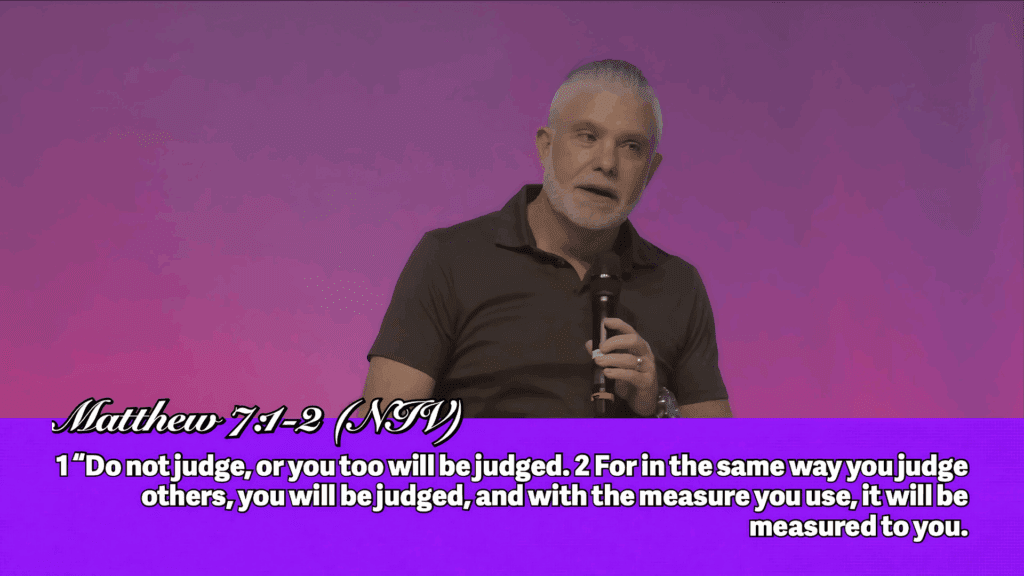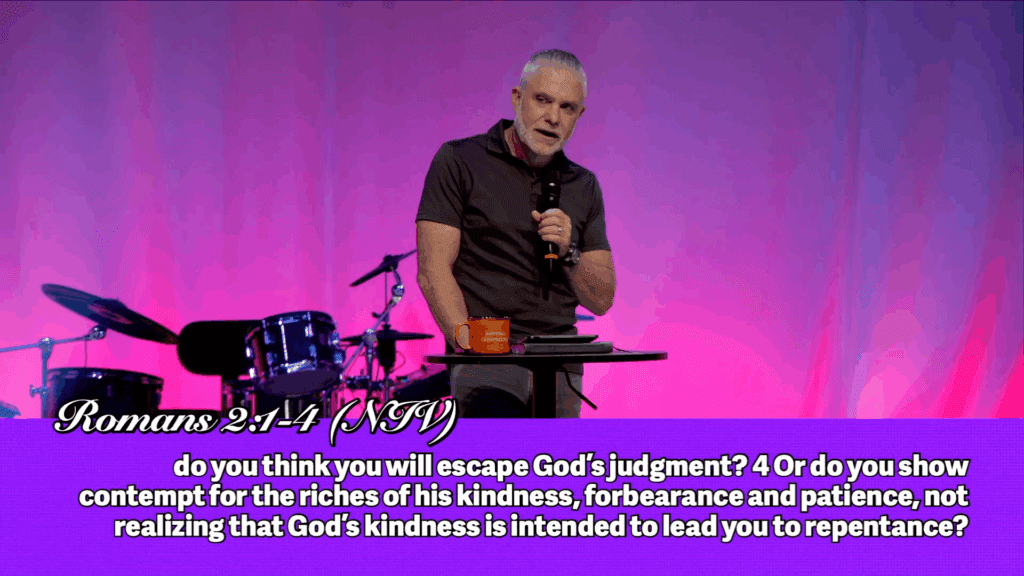Jesus Never Said That | Week 3 | Pastor Ben Pierce
In a powerful message shared by Pastor Ben Pierce of Generation Church FL, a profound exploration of judgment as taught by Jesus reveals truths often misunderstood or misrepresented. This article dives deep into the heart of that teaching, unpacking what Jesus truly said about judging others, and how we can apply it in our lives today with grace, wisdom, and love.

Introduction: Beyond the Misconceptions of Judgment
“Don’t judge me, bro.” You’ve probably heard that phrase thrown around, often as a shield against criticism or accountability. Yet, many people misunderstand Jesus’ words in Matthew 7:1, “Do not judge, or you too will be judged.” Pastor Ben Pierce confronts this head-on, clarifying that Jesus never forbade judgment; instead, He instructed us on how to judge correctly.
This teaching is part of a broader series by Generation Church called Jesus Never Said That, which aims to clear up common misinterpretations of Jesus’ sayings. Pastor Ben Pierce’s message challenges us to rethink judgment—not as a weapon or a silencing tool—but as a necessary and God-ordained part of life that, when done rightly, fosters restoration and growth.

The Need for Judgment: Why We Can’t Avoid It
Judgment is not only unavoidable but essential. Pastor Ben points out that without judgment, society couldn’t function properly. We rely on judgment to:
- Maintain justice through legal systems, including police officers, attorneys, and lawmakers.
- Make daily decisions in parenting, healthcare, and social interactions.
- Discern right from wrong and help others grow spiritually and personally.
Imagine an emergency room without doctors making judgment calls on treatments or a workplace where managers cannot decide whom to hire or fire. Judgment is embedded in every facet of life.
Therefore, the problem is not judgment itself but how judgment is exercised.
Judgment Misused: The Cultural Context
In today’s culture, phrases like “don’t judge me” often come from a place of self-protection or defiance, dismissing accountability under the guise of “my truth.” Pastor Ben emphasizes that this mindset undermines personal growth and the fulfillment of God’s purpose for us.
We need critics, mentors, and people who can lovingly tell us “no” and help us make better choices. The absence of such voices can stunt our development.

How to Judge Correctly: Four Biblical Principles
Jesus’ teaching in Matthew 7 is often taken out of context to silence criticism. But when read alongside other scriptures, it becomes clear that Jesus calls us to judge—but to do so rightly. Pastor Ben outlines four key principles for proper judgment:
1. Don’t Judge Harshly
Jesus warns us not to judge others harshly or without understanding their circumstances. The way we judge others will be the same way we are judged. This principle encourages us to infuse grace into our judgments and avoid legalistic or overly critical attitudes.
Pastor Ben reminds us of the biblical principle of sowing and reaping, also known as the law of reciprocity or karma. If we sow harshness and legalism, we will reap the same. But if we judge with kindness and understanding, that too will be reflected to us.
Judging harshly often comes from a place of ignorance or impatience. Instead, we should seek to understand the “why” behind someone’s actions before forming opinions or criticisms.

2. Don’t Judge Hypocritically
One of Jesus’ most famous teachings is found in Matthew 7:3-5, where He challenges us not to point out the speck in someone else’s eye while ignoring the plank in our own. Hypocritical judgment means excusing our faults while condemning others for theirs.
Pastor Ben explains that the Greek root of “hypocrite” literally means “to put on a mask.” When we judge hypocritically, we wear a mask of self-righteousness that hides our own shortcomings.
Romans 2:1 reinforces this by reminding us that when we judge others for sins we also commit, we condemn ourselves. True judgment must begin with honest self-examination and humility.
Jesus calls us to remove the plank from our eye first, so we can see clearly and judge others with grace and truth.

3. Don’t Judge Superficially
Jesus instructs us in John 7:24 to stop judging by mere appearances but to judge correctly. This means looking beyond surface-level impressions and understanding the deeper motivations and context behind a person’s actions.
Pastor Ben shares the story of Mary washing Jesus’ feet with expensive perfume, a scene judged superficially by Simon the Pharisee. Simon saw only the woman’s external behaviour and judged her unworthy, missing the depth of her repentance and love.
We are reminded not to “judge a book by its cover.” In a world of social media where quick judgments and harsh comments are rampant, this teaching is especially relevant. We must resist the temptation to judge based on race, culture, socioeconomic status, or external behaviour alone.
Proverbs 18:17 also teaches that hearing only one side of a story can mislead us. True judgment requires listening to all sides and seeking the whole truth.

4. Don’t Judge Egotistically
Finally, Jesus warns against egotistical judgment—judging others from a place of pride or self-righteousness. The parable of the Pharisee and the tax collector in Luke 18:9-14 illustrates this vividly.
The Pharisee boasts of his righteousness and looks down on others, while the humble tax collector pleads for mercy. Jesus declares the tax collector justified, teaching us that humility is key to godly judgment.
As Christians, we must be careful not to let our sense of righteousness inflate our egos and cause us to judge others harshly or unfairly.
Pastor Ben points out that judging non-Christians by Christian standards before they are part of the “family” can push them away rather than draw them closer to God. The goodness of God, not our own, leads people to repentance.

Common Misquotes and Misinterpretations: Beyond Scripture
To illustrate how easily words can be taken out of context, Pastor Ben shares several examples of common sayings that have been distorted over time:
- Great minds think alike: The original phrase continues with “but fools seldom differ,” which flips the meaning entirely.
- God is in the details: Often misquoted as “The devil is in the details.”
- Blood is thicker than water: Originally, “The blood covenant is thicker than the water of the womb,” referring to military bonds stronger than family ties.
- Love of money is the root of all evil: Frequently shortened to “Money is the root of all evil,” which changes its meaning.
- Curiosity killed the cat: The full saying is “Curiosity killed the cat, but satisfaction brought it back,” balancing caution with encouragement.
These examples highlight the importance of context and proper interpretation, especially with scripture, to avoid misunderstanding God’s word or misapplying it.

Judgment as a Path to Restoration and Love
Judgment, when done according to Jesus’ teaching, is not about condemnation but about restoration. Galatians 6:1 advises believers to restore those caught in sin gently, watching themselves to avoid temptation.
Pastor Ben stresses that the motive behind judgment should always be to help others grow and heal, not to shame or belittle them. This approach reflects God’s heart and opens the door for true change.
Love is the foundation for all proper judgment. As 1 Corinthians 13:4-8 beautifully describes, love is patient, kind, humble, and enduring. We must judge with the same spirit—graciously, compassionately, and humbly.

Personal Reflection: How Would You Be Judged?
Pastor Ben closes by challenging us to examine our own lives and judgments. If you were to stand before God right now, how would you be judged? None of us is spotless, which is why Jesus came to exchange our sins for righteousness.
Judgment is not something to fear but to understand as a necessary part of life that, when done rightly, helps us become our best selves. It invites us to live with integrity, humility, and love.
If you feel convicted or inspired today, consider praying to invite God into your life, seeking His forgiveness and guidance.

Conclusion: Embracing Godly Judgment in Our Lives
Judgment is a complex but vital part of our spiritual and social lives. The words of Jesus, as explained by Pastor Ben Pierce, invite us to:
- Judge with grace, not harshness.
- Judge ourselves before judging others, avoiding hypocrisy.
- Look deeper than appearances and seek full understanding.
- Judge humbly, without pride or ego.
By following these principles, we can foster a community and a world where judgment leads to restoration, love, and growth rather than division, condemnation, or silence.
Let us strive to judge as Jesus taught, always remembering that it is the goodness of God that leads us to repentance and change, not the harshness or superiority of human judgment.
May this teaching inspire you to reflect on your judgments and embrace a path of love, humility, and truth.
